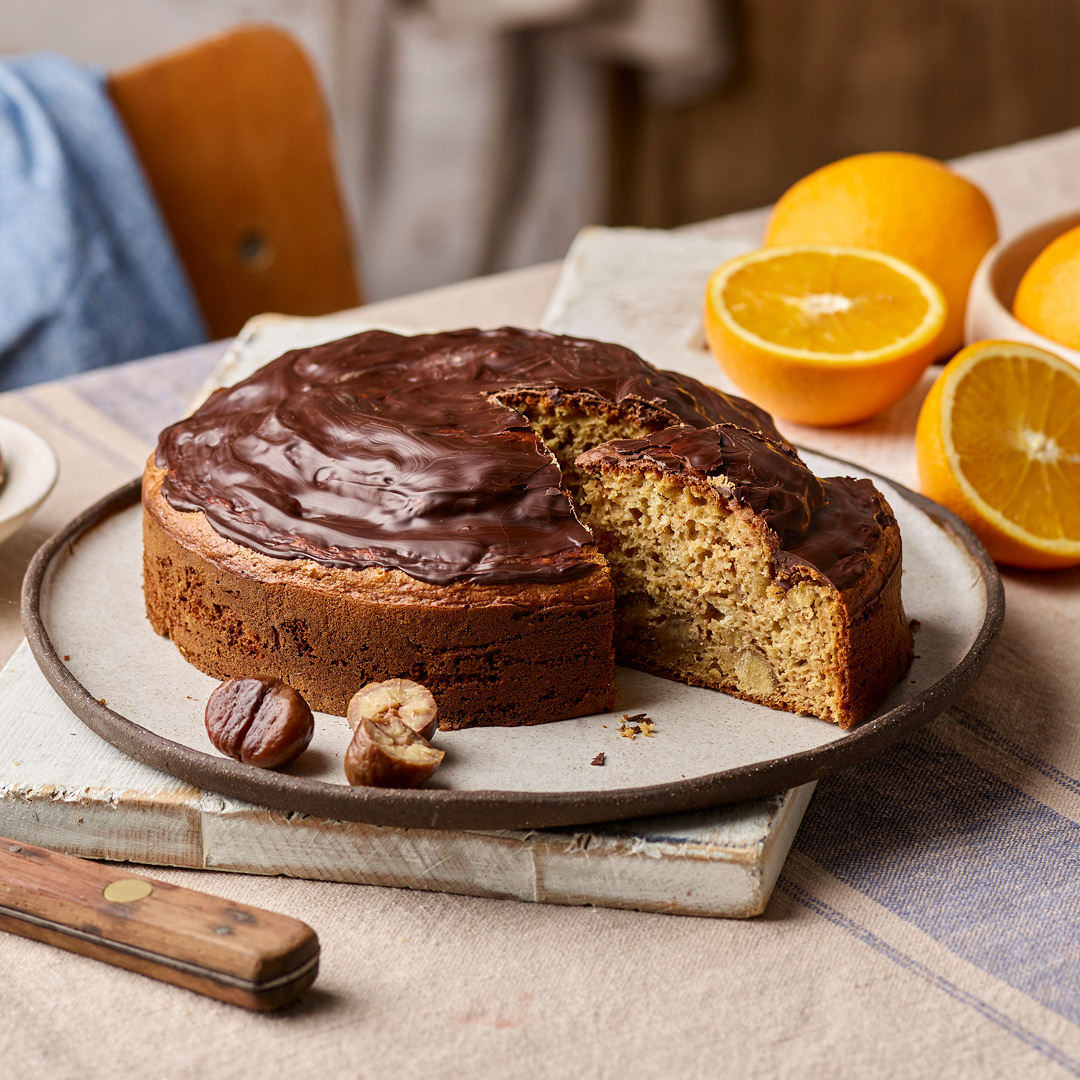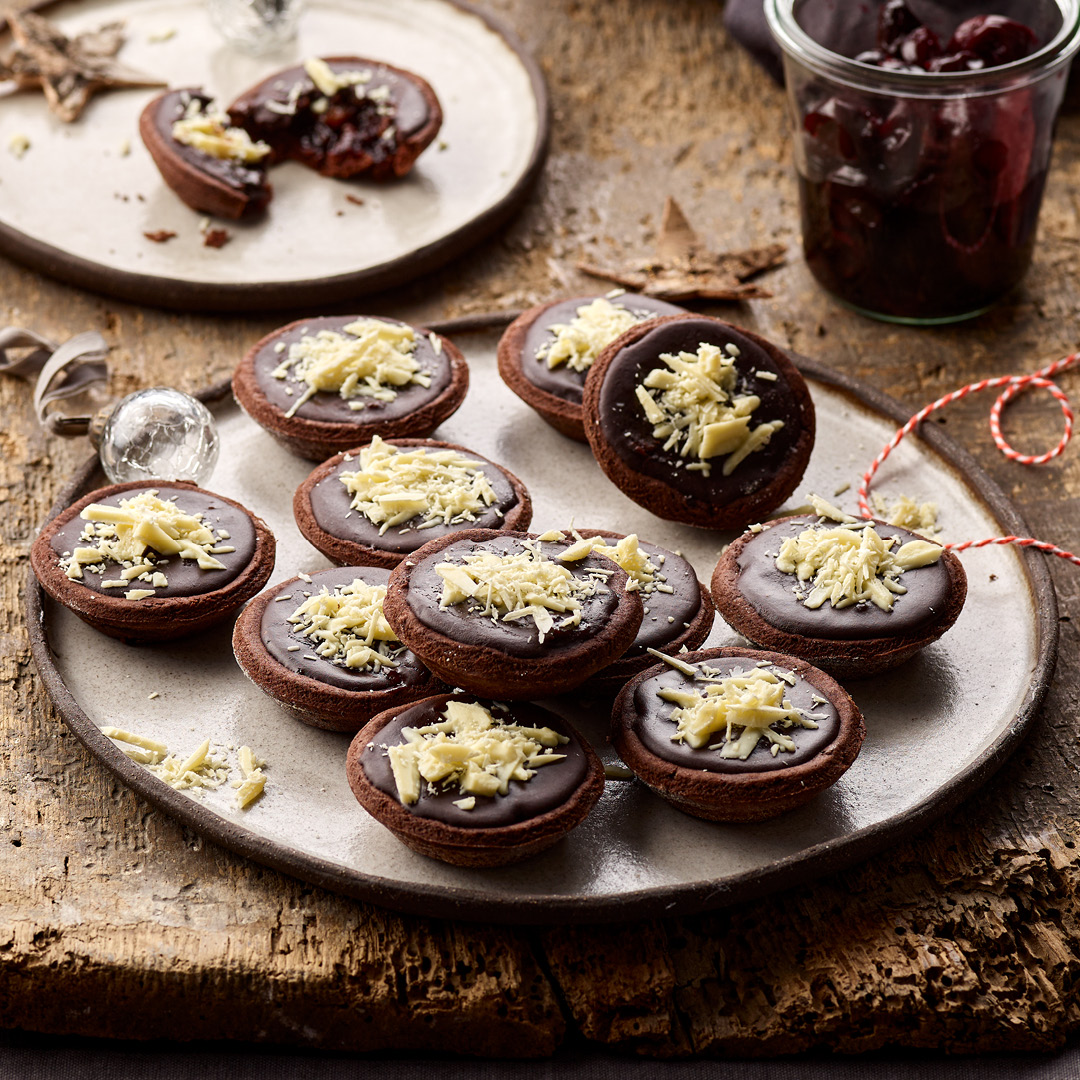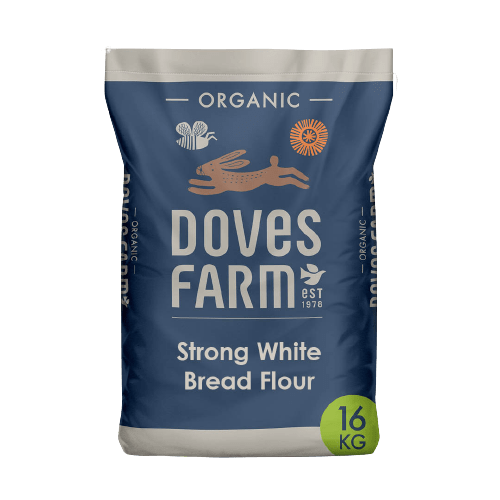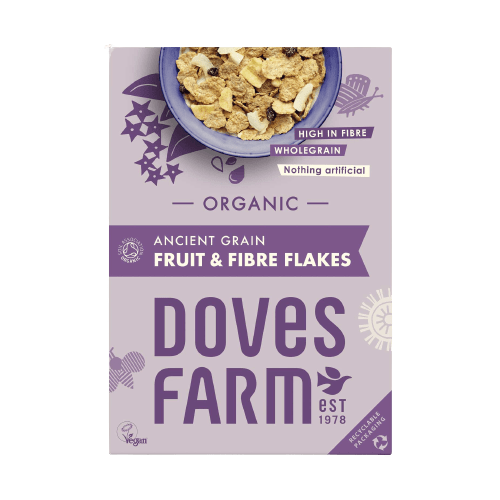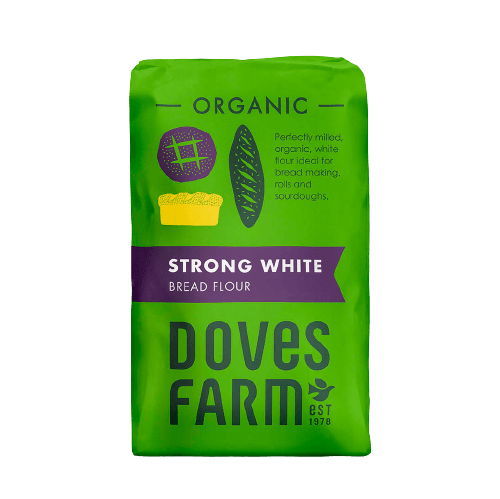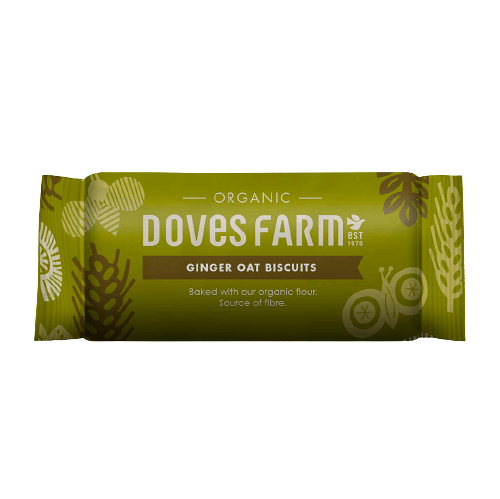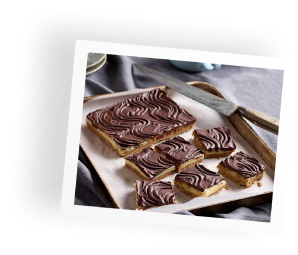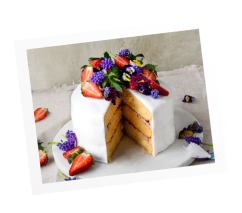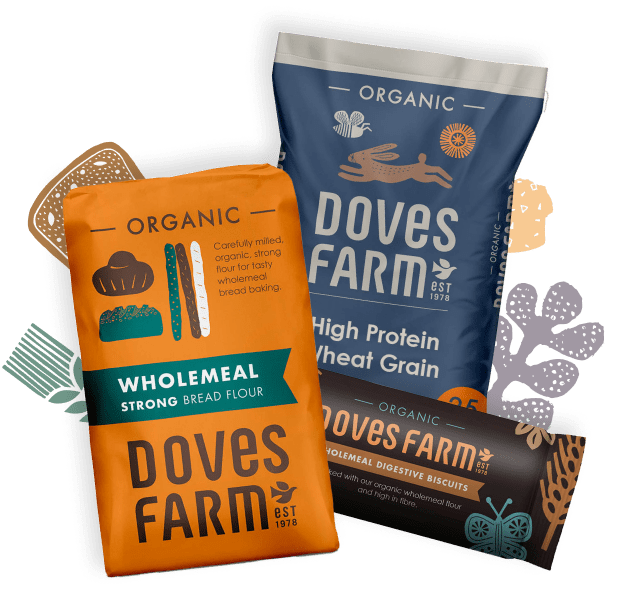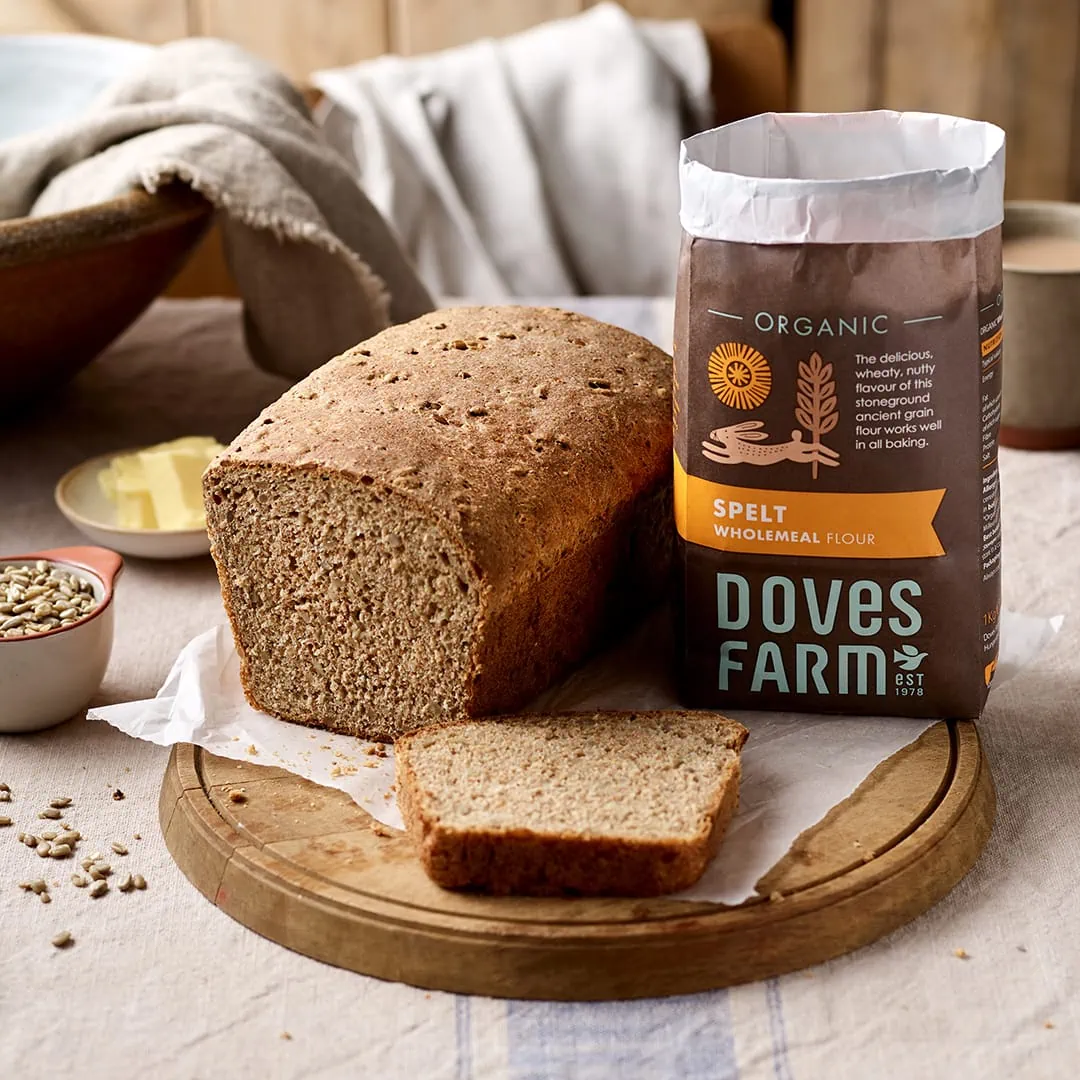What differentiates types of flour and how do you choose the one that’s best for your bake? With many types of flour available, and often with varying names, it can be difficult to know. From your wholemeal to white, strong to plain, stoneground ancient and gluten free, here’s our essential guide to help you get to know your flours.
Choosing the right wheat grain
Before we even begin to mill grain into flour, we must choose the right grain for the job, be it for bread making, cake making or anything in between. So, what distinguishes one grain from another? It’s all down to the protein quality and its ability to form gluten, a sticky protein present in wheat, rye and barley. There are two types of gluten present in a wheat berry: gliadin and glutenin. When the flour is mixed with water and yeast, these proteins form gluten, which expands and becomes elastic, forming a network of fine membranes that trap small bubbles of air enabling the dough to rise. Depending on the protein content of the wheat grain, it is categorised into what farmers and millers refer to as hard wheat or soft wheat.
Soft wheat vs hard wheat
Hard wheat has a high protein content and if it also has good quality gluten, it can develop a strong and elastic dough which enables the dough to rise with a good structure. Hard wheats are used to make bread flour or strong flour which is ideal for breadmaking. At Doves Farm we blend our home-grown varieties of wheat with imported hard wheat to give the best results when baking bread. Organic Strong White Bread Flour, Organic Strong Wholemeal Bread Flour and Organic Malthouse Bread Flour all contain hard wheat and are ideal for yeast cookery, bread, pizza and choux pastry.
Some very hard wheat varieties are especially suited to making pasta. When finely ground, Organic Pasta Flour gives the dough a firm yet silky texture and makes it easy to roll to the expanded thinness needed for great pasta.
Soft wheat has a low protein content and a more fragile gluten elasticity. For this reason, soft wheats which are more suited to cake, biscuit and pastry making, and are milled into Organic Plain White and Organic Plain Wholemeal flours. Also known as all-purpose flour, cake flour, or soft flour, the lower protein content produces a desirable, light and crumbly texture in baked goods such as biscuits, pancakes, pastry and sauces. Self raising flour is plain flour with added raising agents. Use it to make sponges, scones, some biscuits and suet pastry. We make Organic Self Raising White Flour and Organic Self Raising Wholemeal Flour but you can also make your own self raising flour by adding 2 level teaspoons of baking powder to every 100g of plain flour. We suggest sieving both of these ingredients and stirring until they are well mixed.
Wholemeal or White?
Wholemeal flour is made from milling the whole grain in its entirety so that it retains its natural flavours and nutrients, most of which are found in the germ and the bran layers. Why not try: Organic Strong Wholemeal Bread Flour, Organic Fine Plain Wholemeal Flour or Organic Self Raising Wholemeal Flour.
White flour is made by sieving out the coarser particles from the whole grain. The fineness of white flour makes it ideal for more delicate bakes, such as fine patisserie and light sponges. Why not try: Organic Strong White Bread Flour, Organic Plain White Flour or Organic Self Raising White Flour.
Stoneground Flour
Stone grinding is a traditional method of grinding grain into flour that has remained largely unchanged from ancient times. Simply speaking, the grain is ground between two specially prepared mill stones resulting in a wholegrain flour which can be sieved to make white flour. Stoneground flours tend to have a richer flavour and texture and are widely used by artisan bakers, who like to work with baking ingredients and techniques of our heritage. here at Doves Farm we stone grind Spelt, Emmer and Einkorn flours amongst others.
Organic Flour
The organic food chain includes aims to produce high quality food by respecting and nurturing the soil, plant, animal and human health within regenerative systems. The organic logo signifies that the farmer, miller or food processor and baker have been subject to annual organic inspection and certification. All Doves Farm flours are certified organic by the Soil Association. Learn more about organic food here.
Ancient Grain Flour
This term refers to grains and pseudo cereals with traditional and historic backgrounds rather modern grains which are widely grown and consumed. These flours have distinctive characteristics and flavours which lend themselves to a whole variety of bakes. If you are keen to experiment with different flavours, crumb structures and experience the baking traditions of our past, then try baking with our range of Ancient Grain Flours such as Einkorn, Emmer, Spelt, Khorasan and Rye.
Gluten Free Flour
Gluten free flours milled from natural wholegrains, such as brown rice, oats and quinoa, can be a great alternative to wheat-containing flours. The specialist flours open a window of opportunity to experience bakes from other cuisines and cultures.


